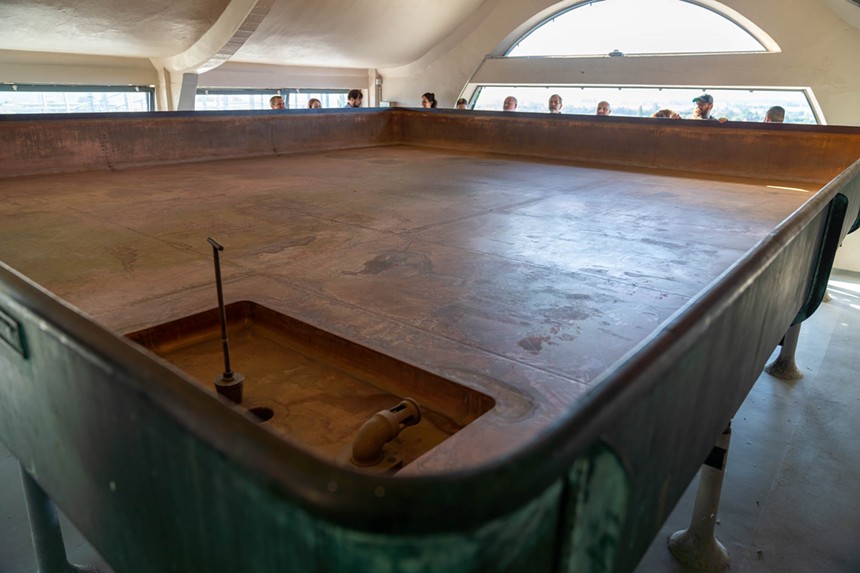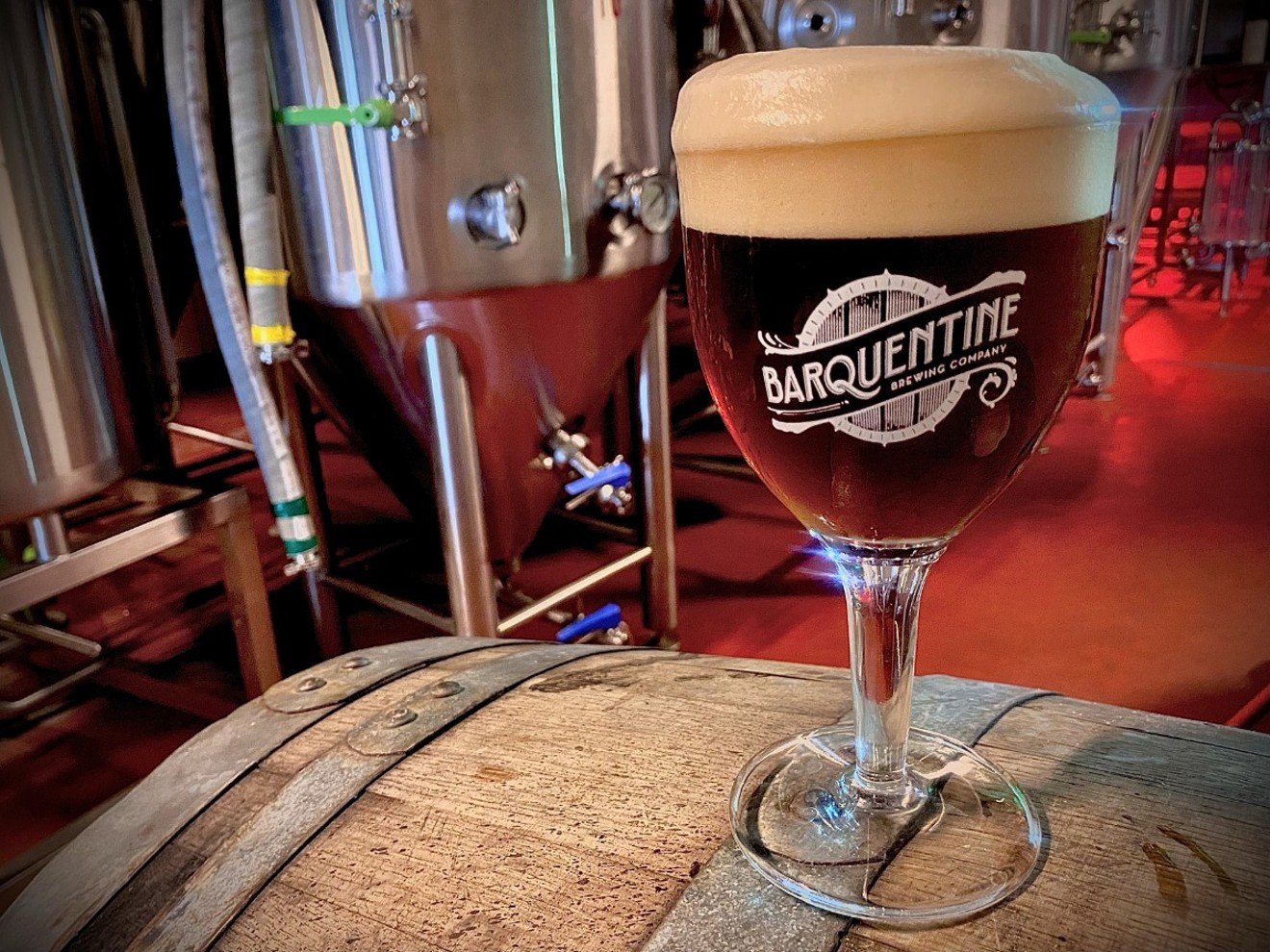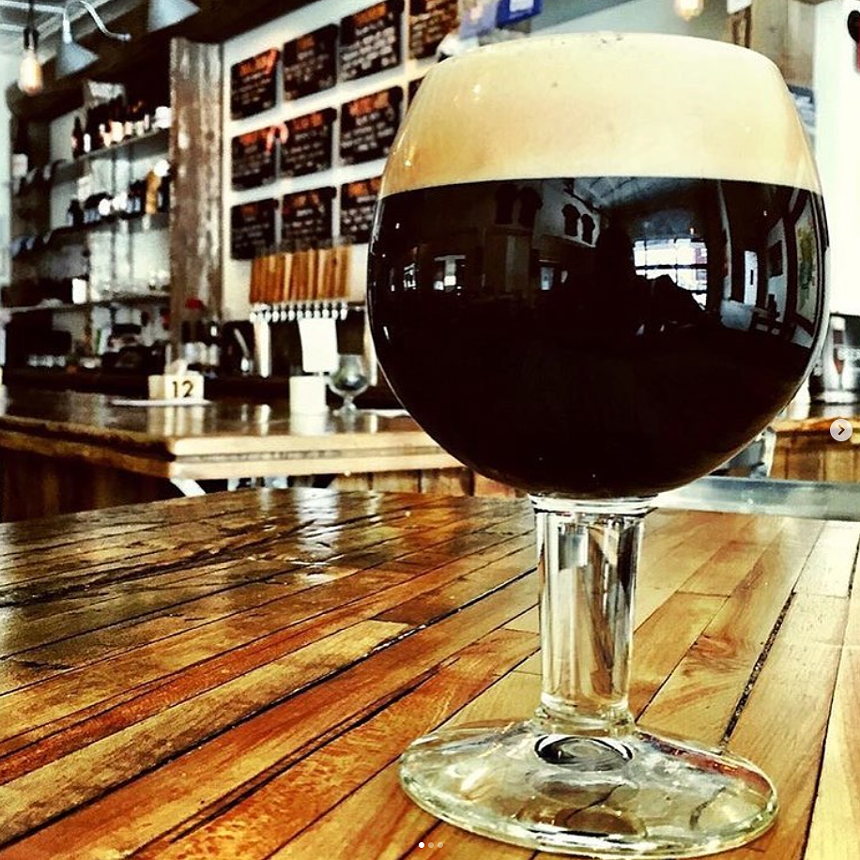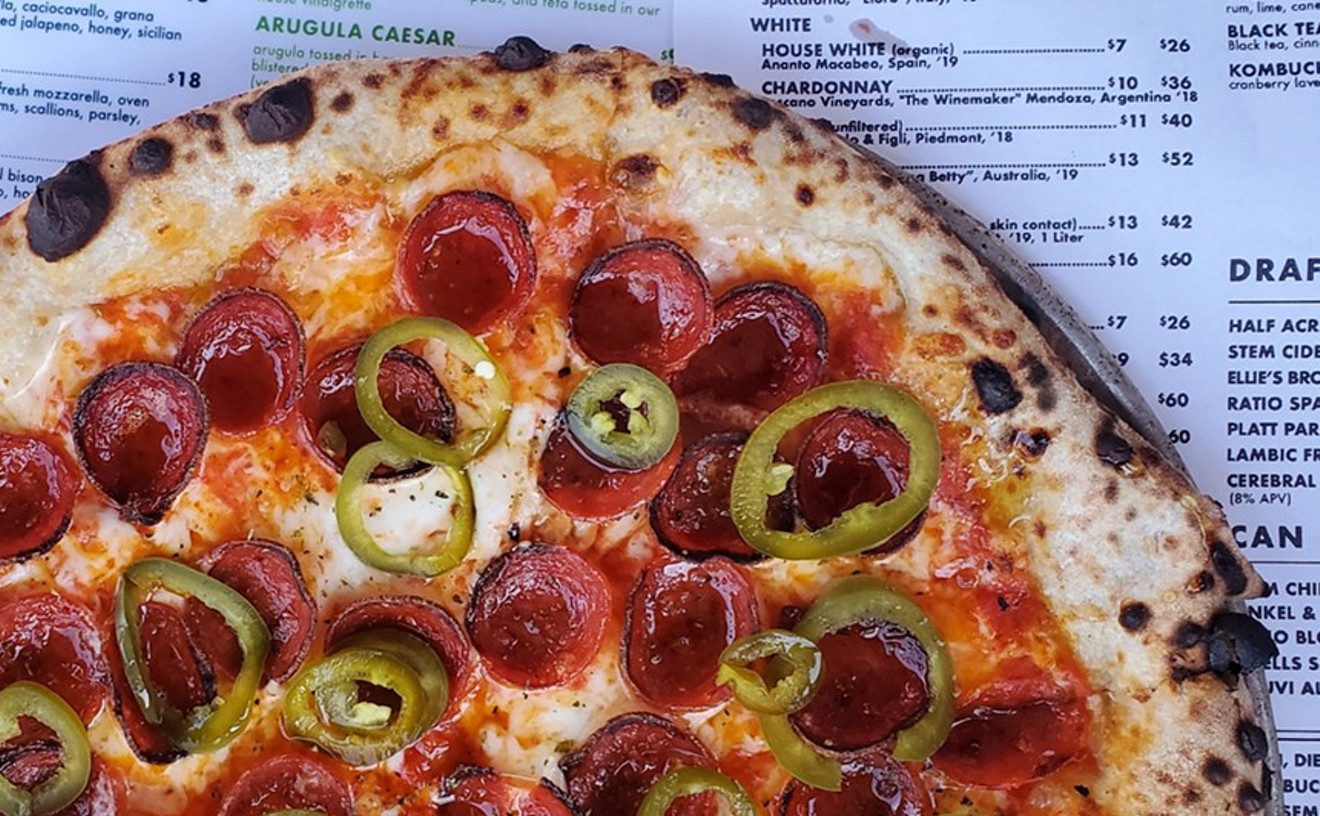Founded in 2016, Bruz Beers might be the only brewery in Colorado to dedicate pretty much all of its taps to Belgian-style beers. "Everybody told me I couldn't do it, that it would be too restrictive to do Belgian styles," says Bruz co-founder Ryan Evans. "We've grown every year since opening the brewery, including last year and this year."
Bruz manages to continue to grow and find success in a variety of ways, but none more than its dedication to taproom sales. "We're very much taproom-focused, customer-focused," notes Evans. "We like to be able to speak with the customer directly and educate them. We're in love with Belgium and its culture and its beer, and we like to spread that."
Bruz holds monthly World of Belgian Beers courses and even a yearly trip to Belgium, where customers can visit all the Trappist breweries and get an up-close-and-personal view of traditional Belgian beer. Bruz extends that education to its staff, too. New team members attend the World of Belgian Beers course in their first month with the company, while Evans takes one to two staff members with him to Belgium each year for a hands-on experience.

The coolship vessel at Brasserie Omer Vander Ghinste was a stop on one of Bruz Beers' yearly tours in Belgium.
Chris Austin
Education is a critical component of Barquentine Brewing's success, as well. "One of my favorite and least favorite questions we get is when customers come in and say they don't like saison," says Barquentine owner and head brewer Kyle Knudson. "Saison is such a wide style — it can be dark or light, spiced or hoppy. So we figure out what they don't like about saison and work backwards. Using that structure to talk with customers, we always arrive at something the customer likes. Maybe they want fruit in their beer, or maybe one time they had a saison with Brettanomyces in it, or they don't like sour beer that is sometimes labeled saison."
Barquentine's name comes from a type of giant wooden sailing ship. "I knew I wanted to play into the [Edgewater Public] Market location and do old world-style beers, specifically Belgian style," says Knudson. The fifteen taps comprise about seven or eight beers in the traditional Belgian style. From there, Knudson gets creative. "We keep a dog from every village on the menu," he says. One such creative example is Copperclad, listed on the menu as a copper ale. The beer is copper-colored, with a distinct malt sweetness from Root Shoot Malting's double honey malt, herbal hops, an almost licorice-like flavor and the hallmark peppery spice from the Belgian saison yeast.
Knudson also brews an IPA, preferring to keep only one on at a time so that the hop-forward beer is always served bright and fresh. He adds a twist, using Belgian yeast to the cold-fermented, well-attenuated IPA. "So many people around here make IPAs really well, so I wanted to bend our IPA back into the family of beers that we make," he says. The result is a smooth and dry IPA that has some sweetness from the Belgian yeast. Of course, it's an IPA, so hops are the star of the show.
In historic downtown Louisville, 12Degree Brewing has been primarily focused on Belgian-style beer since opening in 2013. Like Bruz and Barquentine, 12Degree relies both on destination and neighborhood traffic. "Fortunately, when we opened, we were a lot more popular than I expected," says owner and head brewer Jon Howland. "We don't follow every trend that comes along, but we like to experiment," he adds. "I had been curious about [hazy IPAs] for a while, and after attending a technical talk about them seven years ago, I decided to try some of the techniques. Our first couple of beers were big hits, and since then, we've expanded the number of hoppy beers we brew."
12Degree typically has three or four hazy IPAs on tap, with a few other non-Belgian-style beers regularly making appearances. Nordic-inspired beers with kveik yeast and upcoming lagers are two examples that stray from its Belgian roots. "As long as we're around, we'll continue to brew new styles as we become interested in them," says Howland. "It's a big part of the fun of brewing."
Not every brewery that starts with a strong Belgian focus stays that way, however. "In the beginning, we made almost all Belgians, but after two months, we saw the demand for our IPAs surpass what we could brew," says Outer Range Brewing Company co-founder and CEO Lee Cleghorn, who went to high school in Belgium. "The challenge of marketing Belgians to beer drinkers is that many want very flavorful beers, and some of the delicate flavors of Belgians are below the threshold of flavors some drinkers are looking for."
Outer Range successfully pivoted to those IPAs very quickly, and Lee grew to love the style for some of the same reasons he loves Belgian styles. "To really brew them well, you need to focus on some of the same things that are important to Belgian styles — esters and strong malt bills," he explains. "Hops are obviously the showcase, but you can't make incredible hazy IPAs without focusing on those things, as well."
Success in the IPA field has come on a national level for Outer Range, with awards from multiple national publications, like being named a Top 20 Hazy IPA producer in Beer and Brewing magazine in 2019. It's also capitalizing on the popularity of its IPAs in Europe and is planning to open a brewery in the French Alps in the 2022-2023 winter season.
While Colorado's Belgian-focused breweries seem to be doing well in their own ways, every single one of them expressed a certain sadness that Spencer Trappist decided to fold its brewing operations. While some have blamed IPAs, other reasons are more likely behind the sudden shutdown. "Trappist brewing is an extremely tough thing to do right now," Evans notes. "The base model of just having to be a monk to do it — people aren't exactly flocking and waiting in line to become a monk today. Spencer [also] had a big facility out there. They set out to be really big, and I think they bit off a lot to make it happen."
Fortunately for fans of Belgian beers in Colorado, Belgian imports are readily available on liquor-store shelves and at select bars. But most of all, these styles are in abundance on the taps of Colorado's breweries, where you can find fresh and interesting examples of just about every style from Belgium.













